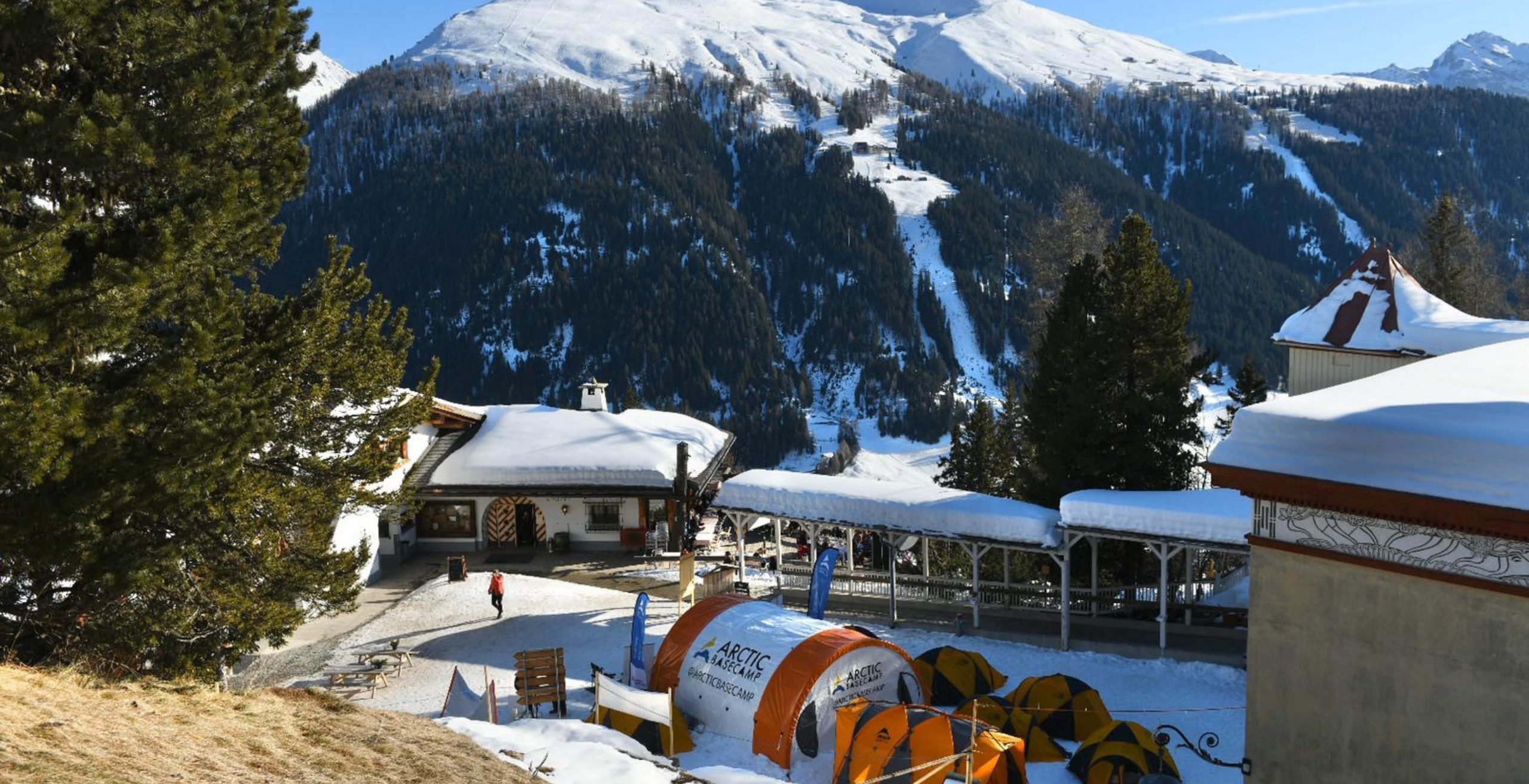Gail Whiteman is Director of the Pentland Centre for Sustainability in Business at Lancaster University and the founder of Arctic Basecamp.
Opened in 2015, The Pentland Centre brings together the best minds in science and business to find more sustainable ways of working that can be applied and scaled by business.
In 2017, Gail launched the Arctic Basecamp, which brings the Arctic to the World Economic Forum (WEF) annual meeting at Davos every year.
Here, we catch up with Gail on how we can all become more involved in the conversations around sustainability to build a brighter future.
What is the purpose of Arctic Basecamp? What are you hoping to achieve?
Arctic basecamp is what I think of as a unique science solution outreach platform. It was our fourth year where we bring a real science tent from the Arctic to Davos and scientists and crew camp there. We then briefed various sessions on global risk, arctic change and global climate change, partnering with those that call on solutions. Every year we’ve had Christiana Figueres, the former head of the UNFCCC and one of the main architects of the Paris Agreement join us. This year we also had our own group of Arctic Basecamp youth delegates, a number of young voices from around the world that had been working with the UN and campaigning for climate action.
What was your role at the WEF this year?
One of the key things we launched this year, with both Christiana Figueres and Greta Thunberg, was the Unite Behind The Science campaign – which is a campaign to say that every political, business and economic decision must be united behind the science. And if it walks away from that, for whatever short-term reason, then it is walking away from the science. That’s something we’re hoping to mobilise over the next year.
What was the big action to come out of Davos?
One of the best things that was launched was the One Trillion Trees initiative. There’s no question that the data is showing we’re approaching tipping point – both with climate change and biodiversity, which is why there was a declaration of a planetary emergency. It was interesting to see how it was dominating and galvanising people – even Trump. That was the biggest shock! That he actually signed up to it.
Who was the best speaker?
Greta Thunberg always speaks well and is a very articulate young person. Christiana Figueres is always amazing and Jane Goodall, as well as Al Gore.
What can our industry learn from Davos?
The idea of incrementalism just isn’t going to fly anymore. It would if we had 200 years, but the science says we don’t, so it really is this idea of how we are going to transition and what is the role of the fashion industry in this transition. Fashion is important because it’s something we all use and relate to – while it’s hugely problematic it has the ability to reach people and reach suppliers globally to ensure that everyone is working to a united goal. But the idea that consumers in their busy lives will be the driver – I just don’t think they will be. It has to be a real-world discussion of how fashion can take the leadership here.
How can businesses make a difference?
I think there’s two things – the first being how to make sure your emissions are massively reduced, by at least 50% by 2030. That’s what everyone needs to do. It’s tough – it’s not an easy thing to do. The second is that the youth movement is massive. They are hugely inspirational and absolutely militant. The UK will be hosting the 2020 UN Climate Change Conference, COP 26 in November – it’s important to think about what the role of a leading UK business is in this? And how can businesses support the emissions curb?
What are your hopes for the future?
I have a lot of optimism but some of that is because I’m stubborn and it makes no sense not to be. Things are not happening fast enough and there is a sort of shadow forming, but I’ve never seen the sort of mobilisation that’s happening now. This gives me hope that we can perhaps make a difference and see a turning point either this year or the next.
To find out more about Arctic Basecamp and join the conversation: arcticbasecamp.org/

